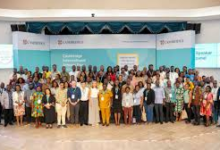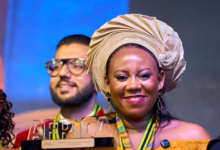Ghana Halal Certification Board gets endorsement

Prominent Ghanaian Imams used last Friday’s sermons (Jumah) to call on Ghanaians in general and Muslims in particular to be mindful of what they eat, consume and use as cosmetics on their bodies and hairs.
This is part of what they say “is a wake up call on all Imams and Islamic leaders to encourage the usage and patronage of only Halal products”.
According to the Imams “there are many products in the Ghanaian markets that are not halal but majority of the populace do not know and so they consume it thinking it is halal or lawful for Muslims to consume.
The Qur’an in Chapter 2:172 says “O you who believe, eat of the good things we have provided to you and be grateful to Allah, if it is He whom you worship,” while one of the Hadiths says “O people! Allah is Pure and, therefore, accepts only that which is pure. Allah has commanded the believers as He has commanded His messengers by saying: ‘O Messengers! Eat of the good things, and do good deeds.’
Zaeem Sheikh Abdul Wadudi Haruna, the National President of the Tijjaniya Muslims Movement of Ghana (TMMG), who helped in the establishment of the Ghana Halal Certification Board (GHCB), called on the government and the Ghana Standards Authority to encourage pharmaceutical companies, food vendors, the beverage industry, restaurants and hotels in Ghana to adhere to Halal requirements and obtain Halal certification from the Ghana Halal Certification Board (GHCB).
He said the Halal board had qualified and well trained conductors and inspectors who supervise the issuance of Halal certification in Ghana which is also recognised globally.
Imam Muhammad Awal Alhassan Shuaib, the Takoradi Metropolitan Imam, who doubles as one of the deputy Imams at the National Mosque of Ghana at Kanda, Accra said “Islam is a complete way of life and has set of principles and values to be respected and adhered to, and they are very simple and easy. You only need to ask and check when buying a drink or cosmetic whether it contains alcohol or pork related products, and in relation to food, whether the animal was slaughtered by a Muslim who knows how to slaughter an animal”.
Chief Mohammed Osman Nuhu, who leads Friday prayers at the National Chief Imam’s Mosque at Kasoa Nyanyanyo and Sheikh Ahmed Tijjani Sharubutu, who also leads Friday prayers at the Ablekuma-Jorma Central Mosque, in their sermons called on Ghanaian Muslims to always check the preservatives used in the manufacturing and production of food, drinks and cosmetics and even pharmaceutical products.
They said “some of the preservatives used in the manufacturing of some consumables are not halal, and therefore renders the final products haram or unlawful for Muslims to consume”.
The Ghana Immigration Service Imam, Ustaz Hafiz, urged and encouraged poultry and cattle farmers to adhere to the Islamic tradition of farming and slaughtering farm produce because Muslims constitute large part of their clients and buyer base.
Other Imams who made the call were Sultan Alhaji Ahmed Nii Nortey, the Ameer and President of the Gadangbe Muslim Council, Sheikh Mustapha Yaa Jalal, the Greater Accra Regional Coordinator of the Tijjaniya Muslims Movement of Ghana (TMMG), Sheikh Anas Sandho, the General Secretary of the Shia Muslim Community in Ghana, and Sheikh Alhaji Aminu Kassim, the Imam of Accra Newtown Chicago Mosque.





